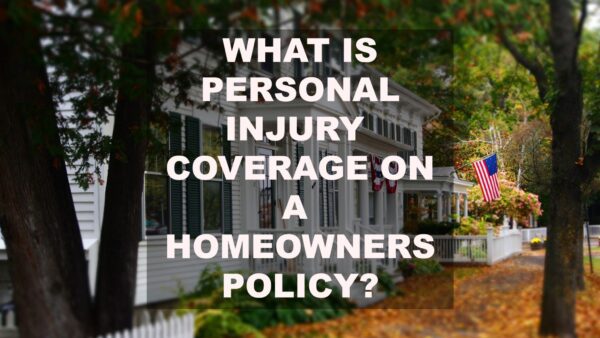
Becoming a homeowner is a dream come true. Whether you are single or starting a family, moving into a home you can call your own has many advantages. Homeowners can build equity on their property and realize tax benefits. However, homeownership does come with a degree of responsibility. You likely have insurance to cover loss, but do you have personal injury coverage on your property, too? Homeownership requires a ‘duty of care’ in maintaining your house and property that will protect you from premises liability. Your homeowner’s insurance policy should have the personal injury coverage needed to protect you, your family, and property.
What are the Premise Liability Laws in Maine?
Personal injury coverage is important for every homeowner. Otherwise, premises liability laws can open the door to financial disaster for a homeowner. The laws are somewhat unique in Maine compared to other states. A landowner, whether commercial or residential, owes all who are lawfully on their property a ‘duty of reasonable care and safety’ when they enter. Homeowners have a responsibility to carry out a reasonable inspection of the property on a regular basis to ensure the safety of their guests from any hazards on their property or they can be subjected to premises liability.
Protecting ‘Guests’ on Your Property
The list of ‘guests’ includes the safety of those who are invited or uninvited—people delivering mail or packages, the snowplow guy dropping off an invoice, the meter reader, the oil delivery person or the neighborhood kid stopping by. The list goes on. Whether or not you know that a hazard exists on your property, if a reasonable inspection shows that it does, the homeowner is liable. Your dog may not bite, but if your beloved pet digs a hole under the front steps that cause it to collapse when the mail carrier drops off a package, the law will assign liability to you, the landowner. In short, generally, there is no defense for a landowner who does not know the condition of his or her property.
On the other hand, unlike delivery people or unexpected visitors, in Maine, trespassers are not protected if they are injured on a homeowner’s property. The only caveat is if the homeowner intentionally sets up a trap or other dangerous conditions intended to injure trespassers. In all other instances, the homeowner should have personal injury coverage insurance.
What is Personal Injury Coverage Insurance?
Personal injury coverage insurance is the personal liability insurance commonly found in most homeowners policies. It is there to protect you from premises liability should bodily injury or property damage occurs on or as a result of your property—such as from a broken step, if a balcony railing snaps,or a slippery surface causes a fall. It also covers property damage if you accidentally damage another person’s property. One example, though it may sound extreme, if a tree on your property falls on your neighbor’s roof during a storm, you could be held liable. Though personal liability coverage can be purchased separately, homeowners should make sure that their insurance policy covers personal injury.
Does Your Homeowners Insurance Cover Personal Injury?
As mentioned, there are situations that may occur on your property that you may be held financially responsible for. Your homeowner’s insurance policy should have a lengthy list of personal injury coverage. At a minimum, it should grant bodily injury and property damage protection that covers you and members of your household outside of your home.
There are many scenarios to consider, too. For instance, that trampoline out in the backyard you had second thoughts about? When the neighborhood kids come over to play, is it covered in your policy? Trampolines pose a serious risk to injury: broken bones, simple sprains, serious fractures, traumatic brain injuries, even spinal cord injuries, and permanent paralysis. What about the family dog? In Maine, homeowners are legally liable if their dog bites someone. Without personal liability coverage, your personal assets can be targeted to pay for the pain and suffering of anyone injured on your property.
Make Sure You Have Personal Injury Coverage
Though homeowners insurance is mostly thought of as providing coverage to repair or replace your home and belongings in the event of a disaster, your policy should also cover any costs associated with bodily injury to visitors or property damage. Make sure your insurance has personal injury coverage—your homeowner’s policy can provide peace of mind, but only if you are well aware of its coverage.

